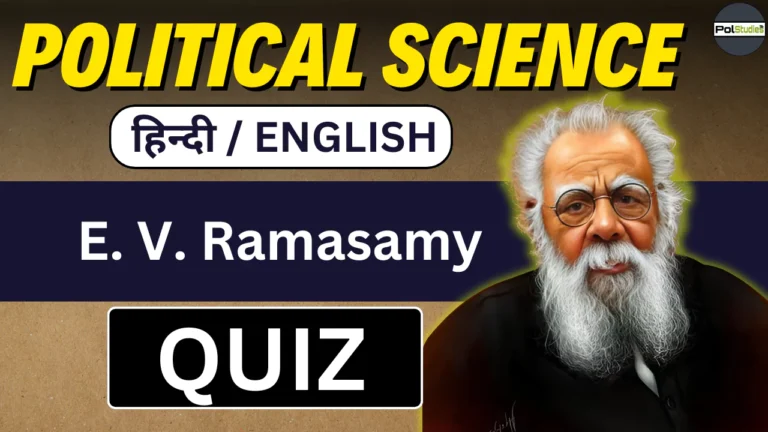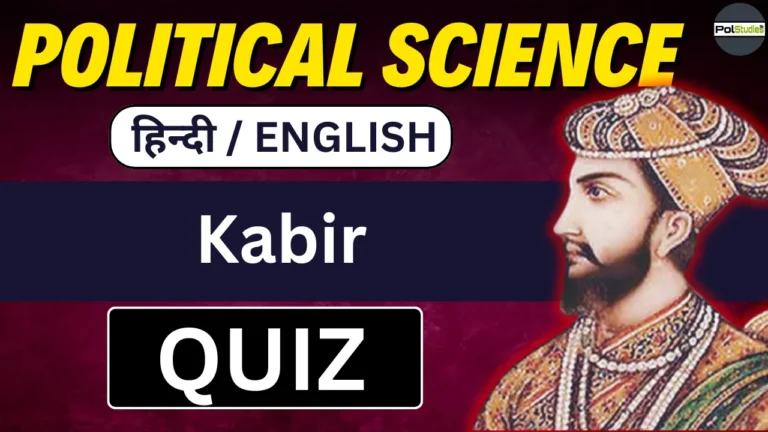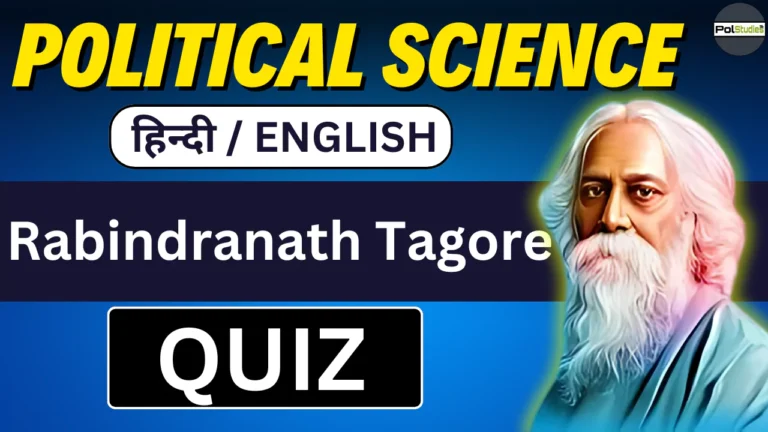Ziauddin Barani Major Theories | Notable Works | UGC NET | CUET-PG
1. Introduction:
Ziauddin Barani (1285–1357 CE approx.) was a 14th-century Indian Muslim political thinker, historian, and courtier during the Delhi Sultanate period, particularly in the reigns of Sultan Muhammad bin Tughlaq and Firuz Shah Tughlaq.
He is best known for his political writings in Persian, which provide valuable insights into the ideology of kingship, governance, and Islamic statecraft in medieval India. He served at the royal court but also fell out of favor later, which gave his writings a critical and reflective tone.
Whatch on YouTube
2. Major Theories and Political Ideas:
Ziauddin Barani’s political thought is significant for being deeply rooted in Islamic philosophy, with a strong emphasis on orthodoxy, hierarchy, and moral governance.
(a) Theory of Kingship:
- Barani advocated for a theocratic monarchy, where the Sultan was considered God’s vicegerent on Earth.
- He believed that the Sultan’s primary duty was to enforce Shariat (Islamic law) and maintain moral order.
- A good ruler, according to him, should be pious, just, and committed to the upliftment of Islam.
(b) Nazaria-e-Nasab (Theory of Birth):
- Barani emphasized social hierarchy and noble birth. He believed governance should be limited to those of noble lineage.
- He was against social mobility and merit-based appointments, arguing that low-born individuals would corrupt statecraft.
- This elitist view reflected Aristocratic conservatism.
(c) State and Religion (Din wa Daulat):
- Barani saw religion and politics as inseparable.
- The Sultan’s legitimacy came from his role as a defender of Islam.
- He supported persecution of non-Muslims and heterodox Muslims as a means to purify and protect the Islamic state — a view aligned with orthodox Sunni ideology.
(d) Role of Ulama:
- Barani upheld the central role of the Ulama (Islamic scholars) in advising the Sultan.
- He believed they should act as moral guides and guardians of Islamic values.
3. Major Works:
| Work | Description |
|---|---|
| Tarikh-i-Firoz Shahi | A historical chronicle of the Delhi Sultanate, especially under Balban, Alauddin Khilji, Muhammad bin Tughlaq, and Firuz Shah. It is more ideological than factual and reflects Barani’s political philosophy. |
| Fatawa-i-Jahandari | A treatise on political theory and statecraft, it outlines Barani’s vision of an Islamic ideal state and prescribes the qualities and responsibilities of a just ruler. |
| Salasil-ul-Muluk (lesser known) | Contains discussions on dynastic legitimacy and royal conduct, though it is not as widely referenced. |
Quiz in English
4. Significance in Political Thought:
- Barani is one of the earliest Indian thinkers to present a coherent political theory rooted in Islamic jurisprudence and political ethics.
- His works reflect the ideological challenges of maintaining Muslim rule in a predominantly non-Muslim land.
- He introduced concepts of divine legitimacy, Islamic governance, and aristocratic order, which later influenced Mughal state ideology as well.
Quiz in Hindi
5. Criticism and Limitations:
- His conservative and elitist views have been criticized by modern scholars for promoting social exclusion and religious intolerance.
- He rejected meritocracy and feared the rise of new social classes.
- Despite his religious orthodoxy, he was deeply philosophical, and his works have both prescriptive and descriptive elements.
Conclusion:
Ziauddin Barani remains a foundational figure in the history of Indian political thought. His synthesis of Islamic principles with political governance, despite its conservative nature, represents one of the earliest systematic political philosophies in the Indian subcontinent. His writings offer not only historical records but also a window into medieval political and religious ideologies.







